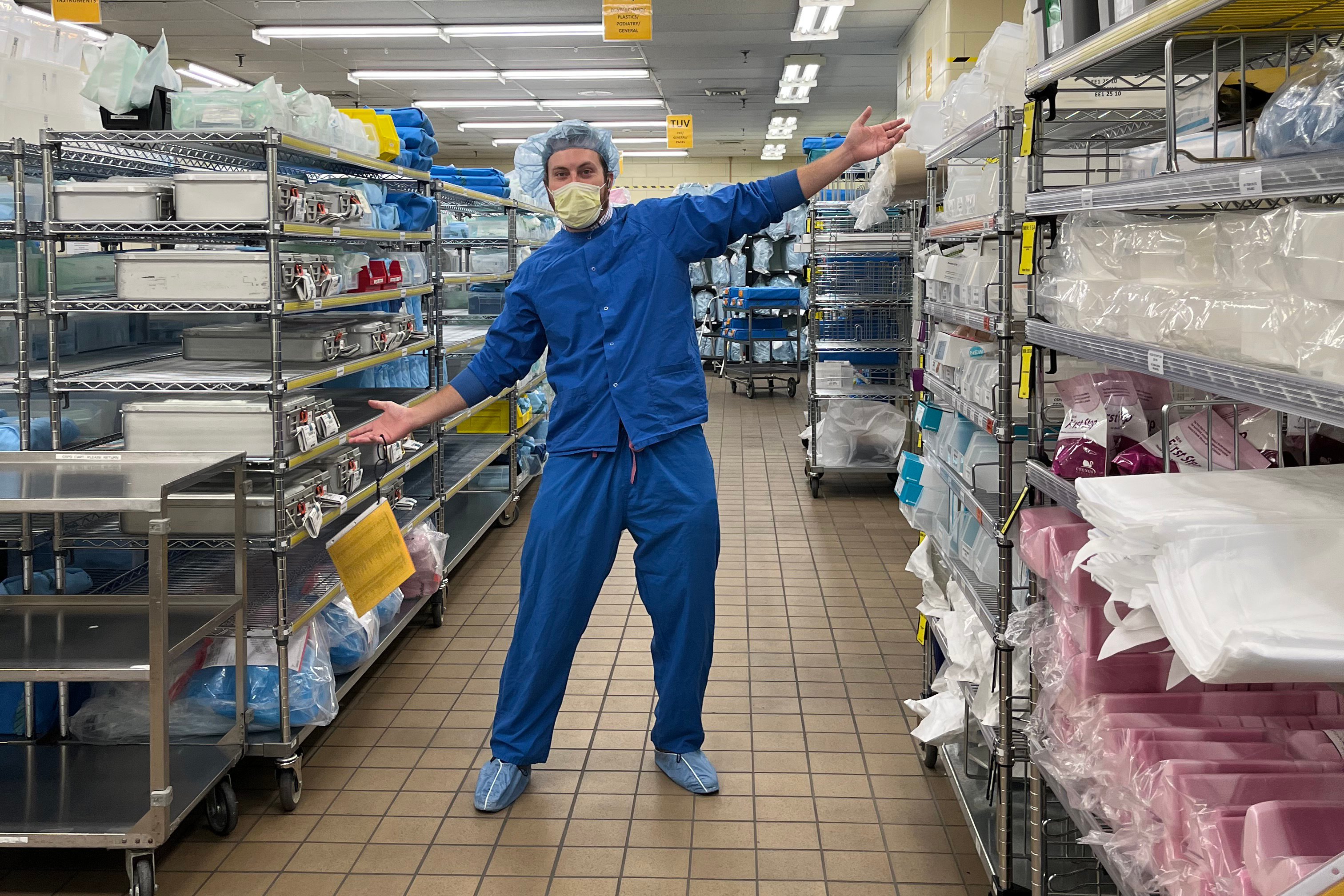
In the fast-paced healthcare environment, an efficient supply chain is more than a logistical achievement—it is foundational to delivering continuous, high-quality patient care. At the heart of this process lies Periodic Automatic Replenishment (PAR) levels, which define the minimum inventory needed to meet daily demands without risking shortages or excess. While technology and systems play a part, the real key to maintaining adequate PAR levels is a well-trained, engaged team. Empowered staff can proactively manage supplies, avoid disruptions, and contribute to a resilient, patient-focused supply chain.
Why Staff Training is Indispensable for PAR Level Success
Effective PAR-level management requires more than technical proficiency—it demands empowerment, accountability, and a shared sense of purpose. By investing in robust training, healthcare organizations equip their staff with the skills and mindset to maintain an optimized inventory system.
Critical Benefits of Staff Training in PAR Management:
- Reduced Shortages: Trained staff can manage real-time inventory, ensuring supply gaps never compromise patient care.
- Cost Optimization: Staff can align inventory management with budgetary goals by preventing overstock and waste.
- Improved Patient Outcomes: Consistent availability of essential supplies directly enhances care quality and patient satisfaction.
Collaborative PAR Management: A Unified Approach
Effective PAR-level management thrives on collaboration. Clinical, administrative, and supply chain teams must work seamlessly together. BlueBin’s training programs emphasize a holistic approach, equipping staff to monitor, count, and replenish inventory in alignment with real-time demand. This cross-functional teamwork fosters a culture of shared responsibility, ensuring the availability of essential supplies while minimizing inefficiencies.
BlueBin’s Training Philosophy: Onboarding and Beyond
At BlueBin, training is not a one-time event—it’s a continuous commitment to excellence. The journey begins with structured onboarding, where staff gain a comprehensive understanding of PAR principles and their role in maintaining them. This foundation ensures that new hires can contribute effectively from day one. Ongoing training keeps staff up-to-date with best practices, fostering a proactive approach to supply chain challenges.
Focus Areas of BlueBin’s Training Programs:
- Building & Maintaining BlueBin Kanban Nodes: Master the setup and management of the BlueBin system's core components.
- Real-Time Monitoring: Ensuring staff can identify and act on inventory issues as they arise.
- Seasonal Demand Planning: Preparing teams to anticipate and adapt to fluctuating supply needs, such as during flu season or emergencies.
- Data-Driven Adjustments: Teaching staff to analyze usage trends for smarter, insight-driven inventory decisions.
- Gemba Audits to Enforce Standards: Perform observations on the floor to drive process adherence.
- Leading Continuous Improvement Initiatives: Champion kaizen events and projects to constantly improve operations.
Real-Time Data: The Backbone of PAR Management
Real-time data is the backbone of efficient PAR management, transforming how hospitals handle inventory. By leveraging advanced technology, BlueBin integrates real-time data directly into inventory systems, providing staff with up-to-the-minute insights into supply levels and usage trends. This integration enables swift, informed decisions to adjust replenishment schedules, respond to shifts in patient demand, and prevent costly disruptions.
With real-time visibility, healthcare facilities can maintain a seamless supply chain that avoids the pitfalls of overstocking or running out of critical items. This agility supports better patient care, minimizes waste, and aligns supply chain operations with both clinical needs and financial goals. Hospitals with this technology enjoy greater efficiency, enabling staff to focus on care delivery rather than scrambling to resolve inventory shortages.
Building a Culture of Accountability
Beyond skills, PAR training instills a sense of accountability. Staff who understand the critical importance of inventory levels are more likely to take ownership of their roles. This accountability leads to consistent monitoring, efficient replenishment, and waste reduction, contributing to a more effective and collaborative workplace.
Accountability also fosters a shared commitment to excellence across the organization. When every team member understands how their actions contribute to patient care and operational efficiency, they are motivated to go beyond the basics. This culture minimizes errors and waste and promotes a collaborative environment where staff actively support one another in maintaining optimal PAR levels.
Effective Communication: The Key to Collaboration
A well-trained team knows that communication is vital to maintaining smooth inventory processes. By encouraging clear, prompt communication of inventory needs or shortages, BlueBin’s training helps eliminate silos between departments. This results in coordinated responses and fewer interruptions to patient care.
This streamlined communication fosters faster, more coordinated responses, reducing delays that could affect patient care. For example, a nurse identifying a potential shortage can immediately notify the supply chain team, enabling a quick replenishment. Such collaboration enhances the hospital’s ability to deliver uninterrupted care while maintaining operational efficiency.
Embracing Data for Smarter Inventory Management
BlueBin’s approach emphasizes the power of data in optimizing inventory. Staff can proactively adjust PAR levels by analyzing historical usage patterns to balance availability and cost. This data-driven strategy ensures hospitals remain prepared for fluctuations in demand while maintaining financial sustainability.
This data-driven approach balances supply availability with financial constraints, helping hospitals allocate resources efficiently without overstocking or running out of critical items. By teaching staff how to interpret and act on this data, BlueBin empowers teams to make smarter decisions, reduce costs, and maintain a resilient supply chain that adapts to evolving needs.
Hospitals adopting these strategies are better positioned to optimize inventory, improve patient care, and achieve long-term sustainability in an increasingly complex healthcare environment.
BlueBin’s Commitment to Operational Excellence
In conclusion, staff training is essential to effective PAR-level management. By fostering a culture of accountability, equipping teams with real-time data skills, and encouraging collaboration, BlueBin empowers hospitals to create resilient, efficient supply chains. This investment streamlines operations and ensures that patient care remains at the center of every decision.
As healthcare evolves, BlueBin remains committed to supporting hospitals with innovative training programs and tools designed to meet the challenges of a dynamic industry. We can build a supply chain prioritizing efficiency, adaptability, and exceptional patient outcomes.
 by
by